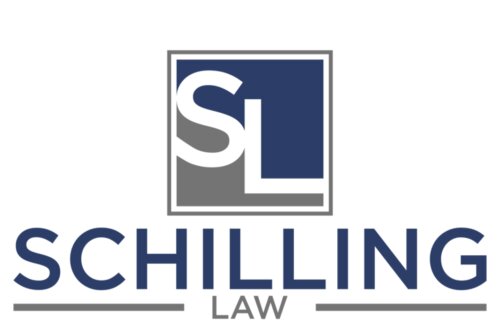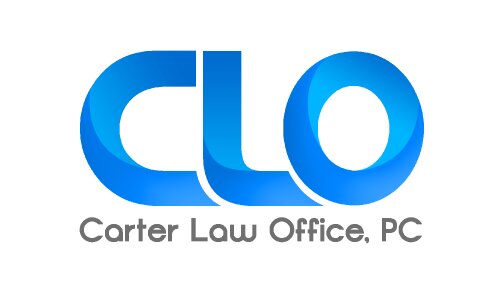Best Housing, Construction & Development Lawyers in Kansas
Share your needs with us, get contacted by law firms.
Free. Takes 2 min.
Free Guide to Hiring a Real Estate Lawyer
Or refine your search by selecting a city:
List of the best lawyers in Kansas, United States
About Housing, Construction & Development Law in Kansas, United States
Housing, Construction and Development law in Kansas refers to the legal framework that regulates the way residential and commercial properties are built, bought, sold, renovated, and maintained within the state. This field covers a variety of issues, including property rights, landlord-tenant relationships, building and safety codes, zoning, financing, permitting, construction contracts, and land use. Whether you are a homeowner, renter, builder, contractor, or developer, understanding how Kansas laws affect housing and development is essential for protecting your interests and ensuring legal compliance.
Why You May Need a Lawyer
There are several situations in Kansas where seeking legal help in Housing, Construction and Development can be crucial:
- Disputes between landlords and tenants over leases, deposits, maintenance, or eviction
- Enforcing or defending against construction defects and warranty claims
- Navigating complex zoning and land use regulations
- Handling property purchase, sale, or financing transactions
- Resolving contract disputes between property owners and contractors
- Addressing code violations or permitting issues
- Defending property rights in eminent domain or condemnation cases
- Complying with fair housing and anti-discrimination laws
- Understanding homeowners association regulations
- Dealing with environmental regulations or contamination
An experienced attorney can help you understand your rights, draft or review contracts, represent you in court or negotiations, and ensure compliance with Kansas housing and development laws.
Local Laws Overview
Kansas has its own set of laws and local ordinances that govern housing, construction, and development. Key aspects include:
- Landlord-Tenant Laws: The Kansas Residential Landlord and Tenant Act controls the rights and responsibilities of landlords and tenants for residential rental properties. This act covers issues like security deposits, rent payments, repairs, entry rights, and evictions.
- Building Codes and Permits: The Kansas State Fire Marshal and local municipalities adopt various building, electrical, and plumbing codes that set standards for safety and construction quality. Permits are almost always required before starting construction or significant renovations.
- Zoning and Land Use: Zoning ordinances vary by city or county and dictate how land can be used (residential, commercial, industrial), the types of structures allowed, setbacks, and density. Property owners must ensure their use and development plans comply with local zoning laws.
- Contractor Licensing: While Kansas does not have a statewide general contractor license, many cities or counties require licensing and registration of contractors and subcontractors operating within their jurisdiction.
- Real Estate Transactions: Kansas law requires most real estate contracts to be in writing. There are also mandatory disclosures for sellers, particularly regarding lead-based paint in homes built before 1978.
- Fair Housing and Anti-Discrimination: Both state and federal fair housing laws prohibit discrimination in housing based on race, color, religion, sex, national origin, disability, or familial status.
It is important to note that each city or county in Kansas may have additional or stricter requirements that apply within its jurisdiction.
Frequently Asked Questions
What are my rights as a tenant in Kansas?
Kansas tenants have the right to a habitable dwelling, privacy, and freedom from unlawful discrimination. Landlords must make repairs necessary to keep property safe and livable, return security deposits within 30 days, and follow legal procedures for eviction.
How much can a landlord charge for a security deposit?
Kansas law limits security deposits to one month’s rent for unfurnished units and one and a half months’ rent for furnished units. Pet deposits can be required in addition to the main deposit but are also subject to limitations.
Do I need a permit to make changes to my home?
Most significant construction, additions, or major renovations require a permit from your city or county building department. Minor repairs often do not need a permit, but it is wise to check with local officials before starting any project.
What happens if my building project does not meet local codes?
If your construction fails to meet local building codes, you may face fines, be required to correct the violations, or even have your project halted. Serious violations could also cause problems when selling or insuring the property.
What regulations affect developers and contractors in Kansas?
Developers and contractors must follow all local zoning, permitting, and building code requirements. They may also need to obtain business and contractor licenses depending on the city or county. Contracts must meet certain legal standards to be enforceable.
How do zoning laws impact property use?
Zoning laws dictate what kinds of activities or structures are permitted on a property, such as residential, commercial, or industrial uses. They can impact property value and future development possibilities. Requests for zoning changes require approval from local authorities.
Can I be evicted without notice?
Landlords cannot evict a tenant without following Kansas eviction procedures. This generally includes giving written notice of the issue and providing time to correct it or move out. Reasons for eviction must be legally valid.
Are there protections against housing discrimination?
Yes, both Kansas and federal laws protect against discrimination in renting or selling housing based on race, color, sex, religion, national origin, disability, or family status.
What should be included in a construction contract?
A strong construction contract should clearly outline scope of work, materials, payment schedule, timeline, responsibilities, warranties, dispute resolution, and how changes will be handled. Having a lawyer review or draft the contract is recommended.
Where can I report unsafe housing or construction?
Unsafe housing conditions should be reported to your local municipality's housing or building inspection department. Serious or unresolved issues can also be reported to the Kansas Attorney General or the U.S. Department of Housing and Urban Development.
Additional Resources
If you need information or assistance regarding Housing, Construction and Development in Kansas, consider reaching out to the following organizations:
- Kansas Attorney General's Consumer Protection Division
- Kansas Housing Resources Corporation
- Kansas Human Rights Commission (for discrimination concerns)
- Local city or county building, planning, or code enforcement offices
- Legal Aid of Western Kansas or Kansas Legal Services for low income individuals
- U.S. Department of Housing and Urban Development (HUD)
- Your local REALTOR or homebuilder association
Next Steps
If you believe you need legal assistance with a housing, construction, or development issue in Kansas, here are some steps you can take:
- Gather all documents and information related to your situation, such as leases, contracts, correspondence, city notices or permits.
- Contact your local building or zoning office with questions about permits or compliance.
- Consult with a qualified attorney who specializes in Kansas housing, construction, or real estate law. Many lawyers offer initial consultations.
- If you have a low income, contact a legal aid organization to see if you qualify for free or reduced-cost assistance.
- Familiarize yourself with local ordinances by visiting your city or county’s official website or contacting municipal offices.
Taking these steps can help you make informed decisions, comply with Kansas laws, and protect your rights in housing and property matters.
Lawzana helps you find the best lawyers and law firms in Kansas through a curated and pre-screened list of qualified legal professionals. Our platform offers rankings and detailed profiles of attorneys and law firms, allowing you to compare based on practice areas, including Housing, Construction & Development, experience, and client feedback.
Each profile includes a description of the firm's areas of practice, client reviews, team members and partners, year of establishment, spoken languages, office locations, contact information, social media presence, and any published articles or resources. Most firms on our platform speak English and are experienced in both local and international legal matters.
Get a quote from top-rated law firms in Kansas, United States — quickly, securely, and without unnecessary hassle.
Disclaimer:
The information provided on this page is for general informational purposes only and does not constitute legal advice. While we strive to ensure the accuracy and relevance of the content, legal information may change over time, and interpretations of the law can vary. You should always consult with a qualified legal professional for advice specific to your situation.
We disclaim all liability for actions taken or not taken based on the content of this page. If you believe any information is incorrect or outdated, please contact us, and we will review and update it where appropriate.
Browse housing, construction & development law firms by city in Kansas
Refine your search by selecting a city.













